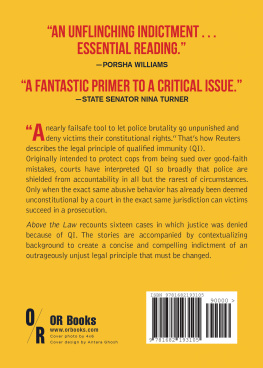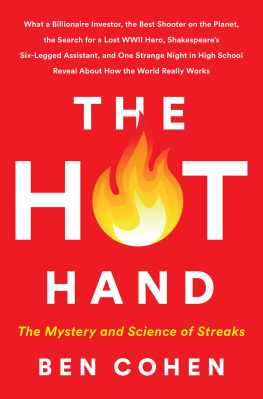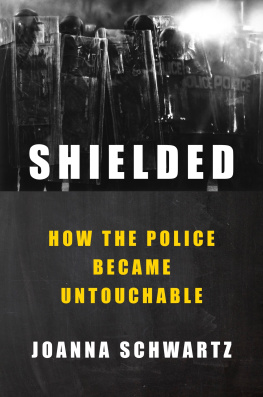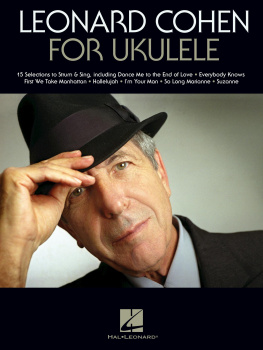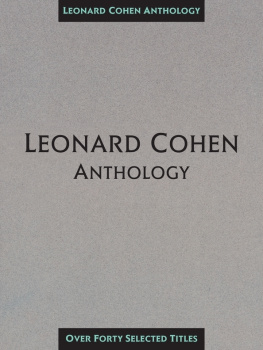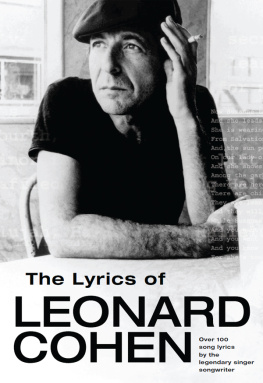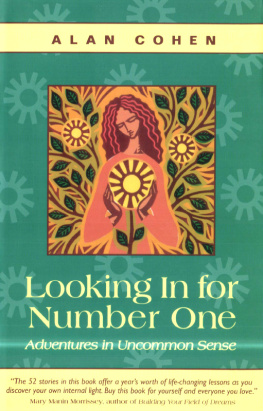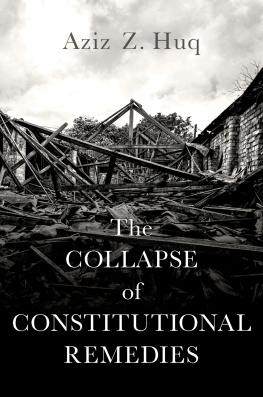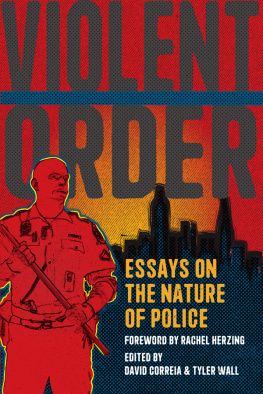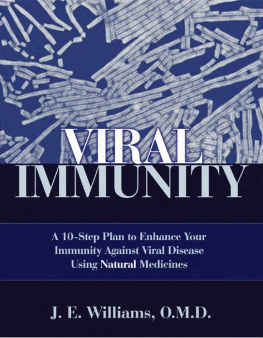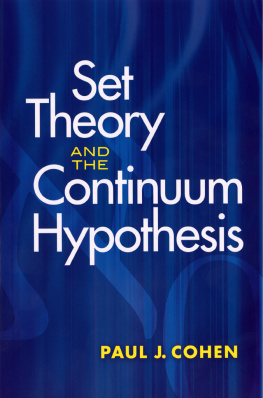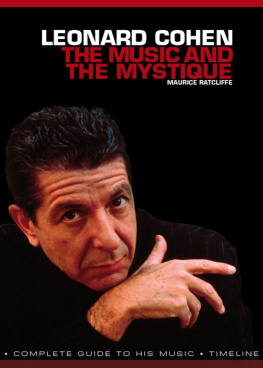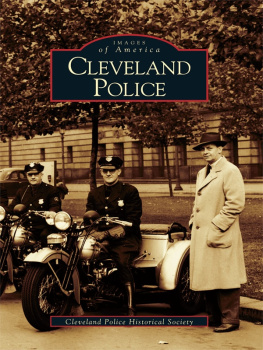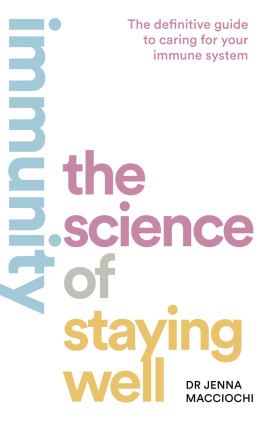Ben Cohen - Above the Law: How “Qualified Immunity” Protects Violent Police
Here you can read online Ben Cohen - Above the Law: How “Qualified Immunity” Protects Violent Police full text of the book (entire story) in english for free. Download pdf and epub, get meaning, cover and reviews about this ebook. year: 2021, publisher: OR Books, genre: Detective and thriller. Description of the work, (preface) as well as reviews are available. Best literature library LitArk.com created for fans of good reading and offers a wide selection of genres:
Romance novel
Science fiction
Adventure
Detective
Science
History
Home and family
Prose
Art
Politics
Computer
Non-fiction
Religion
Business
Children
Humor
Choose a favorite category and find really read worthwhile books. Enjoy immersion in the world of imagination, feel the emotions of the characters or learn something new for yourself, make an fascinating discovery.
- Book:Above the Law: How “Qualified Immunity” Protects Violent Police
- Author:
- Publisher:OR Books
- Genre:
- Year:2021
- Rating:3 / 5
- Favourites:Add to favourites
- Your mark:
- 60
- 1
- 2
- 3
- 4
- 5
Above the Law: How “Qualified Immunity” Protects Violent Police: summary, description and annotation
We offer to read an annotation, description, summary or preface (depends on what the author of the book "Above the Law: How “Qualified Immunity” Protects Violent Police" wrote himself). If you haven't found the necessary information about the book — write in the comments, we will try to find it.
Ben Cohen: author's other books
Who wrote Above the Law: How “Qualified Immunity” Protects Violent Police? Find out the surname, the name of the author of the book and a list of all author's works by series.
Above the Law: How “Qualified Immunity” Protects Violent Police — read online for free the complete book (whole text) full work
Below is the text of the book, divided by pages. System saving the place of the last page read, allows you to conveniently read the book "Above the Law: How “Qualified Immunity” Protects Violent Police" online for free, without having to search again every time where you left off. Put a bookmark, and you can go to the page where you finished reading at any time.
Font size:
Interval:
Bookmark:


 2021 Ben Cohen Published by OR Books, New York and London Visit our website at www.orbooks.com All rights information: All rights reserved. No part of this book may be reproduced or transmitted in any form or by any means, electronic or mechanical, including photocopy, recording, or any information storage retrieval system, without permission in writing from the publisher, except brief passages for review purposes. First printing 2021 Library of Congress Cataloging-in-Publication Data: A catalog record for this book is available from the Library of Congress. British Library Cataloging in Publication Data: A catalog record for this book is available from the British Library. Typeset by Lapiz Digital. paperback ISBN 978-1-68219-310-5 ebook ISBN 978-1-68219-255-9 CONTENTS FOREWORD Not everything that is faced can be changed, but nothing can be changed until it is faced. paperback ISBN 978-1-68219-310-5 ebook ISBN 978-1-68219-255-9 CONTENTS FOREWORD Not everything that is faced can be changed, but nothing can be changed until it is faced.
2021 Ben Cohen Published by OR Books, New York and London Visit our website at www.orbooks.com All rights information: All rights reserved. No part of this book may be reproduced or transmitted in any form or by any means, electronic or mechanical, including photocopy, recording, or any information storage retrieval system, without permission in writing from the publisher, except brief passages for review purposes. First printing 2021 Library of Congress Cataloging-in-Publication Data: A catalog record for this book is available from the Library of Congress. British Library Cataloging in Publication Data: A catalog record for this book is available from the British Library. Typeset by Lapiz Digital. paperback ISBN 978-1-68219-310-5 ebook ISBN 978-1-68219-255-9 CONTENTS FOREWORD Not everything that is faced can be changed, but nothing can be changed until it is faced. paperback ISBN 978-1-68219-310-5 ebook ISBN 978-1-68219-255-9 CONTENTS FOREWORD Not everything that is faced can be changed, but nothing can be changed until it is faced.
James Baldwin On the night of May 30, 2020, I was standing at the Mayor of Atlantas podium, wondering what I might say to keep my hometown from burning itself to the ground before the sun came up in the morning. The fury erupting in the streets of Atlanta in George Floyds name that night was the cry of generations, and it was a righteous cry, and it was justified. Standing there before those TV cameras, I thought of Mr. Floyd in his last moments on Earth, his neck crushed under the knee of a cop who once took an oath to serve and protect his community, his partner standing watch while Mr. Floyd cried out for his mother in heaven and died. I thought of the next generation of Black boys and girls across America who watched that horrible lynching on their phones and I wondered how many of them were no longer surprised by what they saw.
I wondered how many would go on themselves to die at the hands of a racist law enforcement system not far removed from slave patrols of the antebellum South or the decades of Jim Crow oppression that haunted my people afterward. I felt the old rage rising in my own heart and burning in my own eyes, too. Looking back on that night, I know that a part of me wanted to watch the world burn, as well. A part of me wondered if it wouldnt be better than the alternative, of living in a world like this one, where every day it seems I am waking up to watch another Black person die. At the same time, I knew burning ourselves down was not the way. Atlanta is the homeland.
Atlanta is to the Black diaspora, in my mind, every bit as significant as Israel is to the Jewish community, as Brazil is to the Pan-African community. One hundred and twenty years of economic opportunity for Black Americans like my grandmother, who moved here in 1952, or my grandfather, who arrived ten years earlier. Fifty years of Black mayoral leadership. A city that is thriving, even if it aint perfect. A city with the third-most Fortune 500 companies in the nation. A city home to the Atlanta Conference of Negro Problems, hosted by Booker T.
Washington and W.E.B. Du Bois each year from 1896 to 1914. A city where more than fifty restaurants are now owned by Black people, and in particular Black women. Atlanta could not fall, not like this, not right now. We had to fortify. I was duty-bound to speak directly to Atlanta at that momentto remind everyone, including myself, that we must remain a fortress in a sea of chaos.
We do not have to destroy our homes, our neighborhoods, our businesses. We do not have to give in to despair the way they want us to. We do not have to live our lives in grief and anguish that spans the days between one martyred hashtag and the next. We do not have to hang our hopes on some damn prosecutor to do the right thing after they stood by and let the wrong thing happen, again and again. So I swallowed down my anger, and I opened my remarks by laying down the truest line I knew: I didnt want to come, I said. And I dont want to be here.
First, before we talk about qualified immunity, let me say something about cops that needs to be said. I am the proud son of a former officer of the Atlanta Police Department. Two of my cousins are police officers right now. Based on what I experienced growing up here in Atlanta, I believe that there are cops who are not inherently bad or evil people, who want to keep our communities safe and who work hard to do so. One example right off the bat is Officer Tommy Norman out in North Little Rock, a guy Ive thrown some shine to before on my podcast. Maybe youve seen Tommy on his social media accountsif not, look him up sometime.
Tommy doesnt live in his patrol car, looking to hit some arrest quota by the end of the month. He knows the people on his beat, and they know him back. North Little Rock aint an easy place to be a cop, but even still, people in the community dont fear for their lives the second they see Tommys squad car roll up. Thats a testament to him. Thats because he does it right . With that said, even good cops like Tommy Norman still operate inside a larger system that is itself overly militarized, harshly punitive (particularly against Black Americans), and absent of any real legal accountabilityas we continue to see, time and time again, with these cops who murder my people with impunity.
As a result, bad cops are allowed to make good cops like Tommys jobs even harder, because of the public trust that has been broken. And there will be no fixing that public trustor the law enforcement system as a wholewithout first ending the legal doctrine known as qualified immunity. Qualified immunity is the rule that protects government employees from being taken to task for assaults on your constitutional rightsin this instance, your Eighth Amendment right against cruel and unusual punishment at the hands of the stateso long as those employees did not violate clearly established law. Of all the predatory elements of American policing (and there are many, from the legal chokeholds to monthly arrest quotas to the NYPDs infamous stop-and-frisk policy) the qualified immunity doctrine is perhaps the single lynchpin that holds the entire machine together. Without ending qualified immunity, theres no way to hold bad cops accountable for their violent crimes against the American people. The system will perpetuate itself largely undisturbed, the violence will rage on and on, and Black communities all over the country will keep on living in fear of the very people sworn allegedly to protect them.
The goal of a democratic society is to create and protect a system of government where all people, no matter their race, class, religion, gender, sexuality, or creed, are treated fairly and with human dignity. I would not say it is highly disputable that our country has not yet achieved that goal, no matter what patriotic stuff our politicians tell us every two to four years. But if we as Americans are going to take a good-faith approach toward attempting to achieve that goal, one area where we must begin is in fixing our broken and brutal law enforcement system. This starts with ending qualified immunity. The progression of law enforcement in America through the centuries has been a shameful story of racism and oppression. You dont need to take my word on thatIll leave it to the top law-and-order experts themselves.
As recently as 2018, one of Donald Trumps former Attorneys General, good old Jeff Sessions of Alabama, said to a roomful of white cops at the National Sheriffs Association winter conference that the office of the sheriff was a critical part of the Anglo-American heritage of law enforcement. Now, Jeff was honest in saying that, but sadly it was just a very nice, very professional way of saying that sheriffs departments began as slave-catcher organizations and have not come very far in the centuries since. And they havent. We have to be honest with ourselves about how law enforcement has taken hold in American society. What began as a slave-catchers role eventually evolved into, after the Thirteenth Amendment technically abolished chattel slavery, an agent of legally imposed Jim Crow oppression on Black Americans. As the decades went on and various important civil rights victories were achieved, police departments got more creative.
Next pageFont size:
Interval:
Bookmark:
Similar books «Above the Law: How “Qualified Immunity” Protects Violent Police»
Look at similar books to Above the Law: How “Qualified Immunity” Protects Violent Police. We have selected literature similar in name and meaning in the hope of providing readers with more options to find new, interesting, not yet read works.
Discussion, reviews of the book Above the Law: How “Qualified Immunity” Protects Violent Police and just readers' own opinions. Leave your comments, write what you think about the work, its meaning or the main characters. Specify what exactly you liked and what you didn't like, and why you think so.

